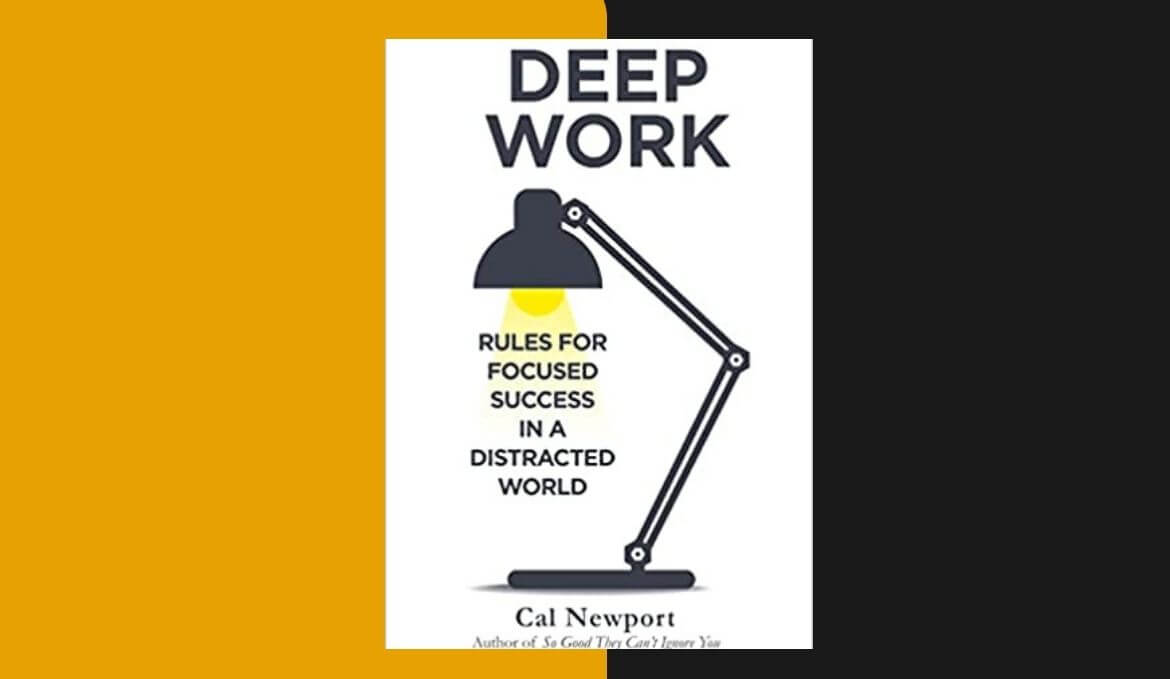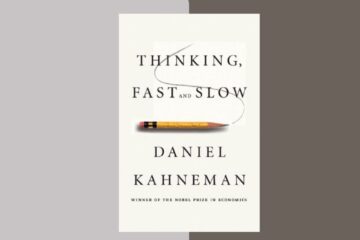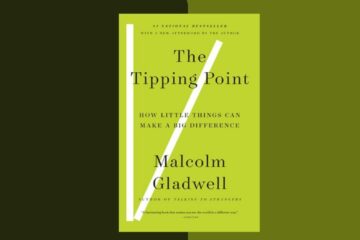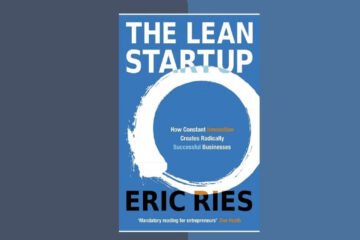Have you ever noticed that you are losing focus while watching your favorite film or playing a game? Most probably, you kept your focus. But have you ever needed more focus while doing your work, reading a book, or doing something else you did not like? I am sure that your answer will be yes, and that is a ubiquitous thing.
Why you lost your focus while working? One of the biggest reasons is you lose your direction when you are doing something you do not like, and the second most significant problem is the destruction when you are doing work that you do not want the most. While doing that, if you find a disturbance so you can be distracted from your work.
Deep Work by Cal Newport is just written so that you can focus on your work and do your work with depth. In this book, the author tells us about the importance of deep work and how successful people follow this rule strictly to improve themself.
Summary of Deep Work
Deep work is defined as the capacity to focus intently on a task without being distracted. It comprises setting aside particular times and places for focused work, which boosts output and efficiency. In his book “Deep Work,” Cal Newport explores the advantages of deep labor and provides helpful advice for bringing it into daily life. You can apply the following key teachings from the Deep Word:
Introduction to Deep Work

First of all, you have to know the meaning of deep work. Deep work aims to create an environment where no one can disturb you or distract you from your work. You are away from the disturbance of people, social media, and other things that annoy you, like mobile phones.
Your priority is your work at that time, and you should not be in a hurry. You have prepared for your work, and now it’s time to make it practice. You can work on new ideas related to your project that can help you improve the project.
Simply, you can say to yourself that you are away from the disturbance of humans and many other things that may cause distractions. You have to know that many successful people like Bill Gates, Peter Shankman, Michelangelo, J. K. Rowling, and many others follow the more significant role of Deep Work. They all say that you can not give your 100% to your work by doing deep work because it dramatically impacts their lives.
The Importance of Deep Work
You think that when we can do our work in destruction or semi-destruction, why must we do deep work? What is the importance of deep work in our life? So here the thing is what job you do in destruction or semi-destruction, in future robots and robots will do this work and can easily replace you that’s why you have the ability of the work.
If you do multi-tasking work, you do more than two works at a time. While watching TV, you reply to your emails and messages, or during work, you also use social media, which makes you distracted and you do not entirely focus on your work. Your multi-tasking work will be replaceable very soon because many other people can do the same cheaply. After all, you know there is vast unemployment and overpopulation worldwide.
That means your distracted work will be replaceable very soon because the new era is AI, and AI is more powerful and intelligent than the human brain. The only few things that AI cannot do is learn our emotions and do deep work that makes us the difference between robots and humans.
The Four Rules of Deep Work
Distractions are commonplace in today’s hurried society. Focusing on important activities has never been more difficult because to the internet, social media, and cell phones. The idea of profound work comes into play here.
Deep work is the capacity to focus without interruption on a cognitively challenging job. Even if it is getting harder to find, this skill is more valuable than ever in our information-driven economy. Professor Cal Newport of computer science at Georgetown University has provided four guidelines for deep work that can aid us in developing this ability.
Work Deeply
Working hard is the first rule of profound work. This implies that you should give each task your complete attention and concentrate on it at a time. Although it might seem like a good approach to accomplish more, multitasking actually causes you to work more slowly and produces lower-quality results. Deep work puts you in a state of flow where time seems to fly by and you are totally focused on your task. Your best work comes out during this time.
Embrace Boredom
Being tolerant to boredom is the second rule of deep work. When you put a lot of effort into your work, you will inevitably experience periods of boredom where the activity at hand seems monotonous or uninteresting. However, pushing through these moments and staying focused on the task is essential. By embracing boredom, you train your mind to be comfortable with discomfort and build the resilience necessary to tackle more challenging tasks in the future.
Quit Social Media
The third rule of deep work is to quit social media. Social media is designed to be addictive and a constant source of distraction. When you are trying to work deeply, social media can be a significant impediment to your progress. Quitting social media entirely may only be feasible for some, but limiting its use during deep work sessions is essential. You can use apps like Freedom or SelfControl to block social media websites during your work hours.
Drain the Shallows
Drain the shallows is the fourth and last rule of deep work. The shallows are the non-essential, low-value activities that take up the majority of our time, such checking emails or going to meetings. These duties may seem significant, but they frequently serve as distractions from our inner work. You must identify these low-value jobs and find strategies to eliminate them or assign them to someone else if you want to drain the shallows. As a result, you’ll have more time for in-depth work and be able to finish projects faster without sacrificing quality.
Strategies for Deep Work
In the middle of a world filled with distractions, Deep Work provides methods for creating a state of intense concentration and productivity. The four crucial techniques of time blocking, rituals, environment optimization, and mindfulness can be used to describe these strategies.
Time Blocking
Time blocking involves setting aside specific blocks of time for focused work while filtering out unproductive pursuits like social media or email. By utilizing this strategy, you can ensure that you stay on time between jobs, which might break your attention and lower the quality of your work.
It’s crucial to be realistic about how much time you need for each work while employing time blocking and to be committed to following your schedule. You can use tools like Google Calendar or Trello to help you manage your time more effectively.
Rituals
Pre-work routines that help you transition into deep concentration are called rituals. These rituals can be mental or physical, like writing in a journal or stretching or going for a short walk. The trick is to stick to a consistent routine that tells your brain when it’s time to focus hard.
Rituals can help you enter a state of flow more quickly, improving the quality of your work and increasing your productivity, which is a benefit. Additionally, they can assist you in overcoming resistance to undertaking a task and establishing a mindset conducive to deep work.
Environment Optimization
The key to maximizing focus is to set up a space that encourages deep work. To do this, distractions like noise and visual clutter can be reduced, and a designated area free from interruptions can be established.
You can use equipment like noise-canceling headphones, privacy screens, or even a distinct workspace away from your house to improve your environment. Additionally, repeatedly working in the same spot, you can teach your brain to associate that area with concentration.
Mindfulness
Being mindful means giving your all to your job and being in the present. This strategy entails being aware of your thoughts and feelings while focusing on the job.
It is crucial to be aware of distractions and actively direct your attention back to your work when engaging in serious work while practicing mindfulness. Techniques like heavy breathing or concentrating very hard on your visualizations can help with this.
The advantages of mindfulness include increasing general well-being, lowering stress, and enhancing focus. You can increase productivity and find more fulfillment in your work by incorporating mindfulness into your deep work regimen.
Applying Deep Work to Your Life
The first step in implementing deep work into your life is to arrange your most crucial duties and set aside time specifically for deep work. Then, you can try with various techniques, including time scheduling, rituals, surroundings management, and mindfulness, to see which ones are most effective for you. Another crucial aspect of incorporating deep work into your daily routine is to be constant and persistent in your efforts.
Deep work is a skill that is becoming increasingly valuable in today’s world. By following the four rules of deep work, you can train your mind to focus deeply on cognitively demanding tasks, and produce your best work. Be bored, stop using social media, and drain the shallows by working deeply. These rules may not be easy to follow, but they are essential if you want to thrive in today’s information-driven economy.
What you can learn from Deep Work by Cal Newport
In “Deep Work: Rules for Focused Success in a Distracted World,” Cal Newport argues that deep work, or the ability to focus on cognitively demanding tasks without distraction, is becoming increasingly valuable in today’s economy. Here are some lessons and takeaways from the book:
Deep work is necessary for success: Newport contends that deep work is needed to produce high-quality work and that the ability to focus is becoming increasingly rare and valuable.
Deep work requires deliberate practice: Newport suggests that to improve your ability to engage in deep work, you need to practice focusing your attention for more extended periods deliberately.
Distractions hinder deep work: Newport argues that distractions, particularly from technology and social media, can prevent us from engaging in deep work and reaching our full potential.
Time spent on shallow work should be minimized: Newport suggests reducing the time spent on external work or tasks that don’t require much cognitive effort to free up more time for deep work.
Deep work is a skill that can be learned: Newport believes that deep work is a skill that can be learned and developed over time with practice and discipline.
About The Author Cal Newport

Author and Georgetown University computer science professor Cal Newport is well known for his insights on productivity, technology, and deep work. He has written six books, one of which is “Deep Work: Rules for Focused Success in a Distracted World,” a best-seller.
The argument made in Newport’s work is that our constant connectivity and distraction prevent us from reaching our full potential. His work focuses on the intersection of technology and productivity. He says that the key to success today is deep work, which means working on difficult projects for a long time without interruption.
Newport has been mentioned in numerous publications, such as The Economist, The Wall Street Journal, and The New York Times, and he has also given speeches and presentations all over the world. In addition to being the author of “Digital Minimalism” and “So Good They Can’t Ignore You,” he holds a Ph.D. from the Massachusetts Institute of Technology. Numerous individuals and businesses have benefited from Newport’s insights in increasing productivity and success.
Conclusion
The book argues that the ability to focus entirely on demanding tasks without interruption is becoming increasingly rare and valuable in today’s knowledge-based economy. Newport provides strategies for cultivating deep work habits, such as scheduling uninterrupted time for focused work, minimizing shallow work, and creating a high-quality work environment through examples and case studies.
In general, the book by Newport provides valuable insights into the advantages of deep work and practical guidance for acquiring the skills necessary for its accomplishment. Newport is a potent antidote to the culture of distraction that permeates much of modern life and work by emphasizing the significance of sustained concentration. In the end, Deep Work is a compelling call to action for anyone who wants to improve their capacity for intense concentration and reach their personal and professional goals.



